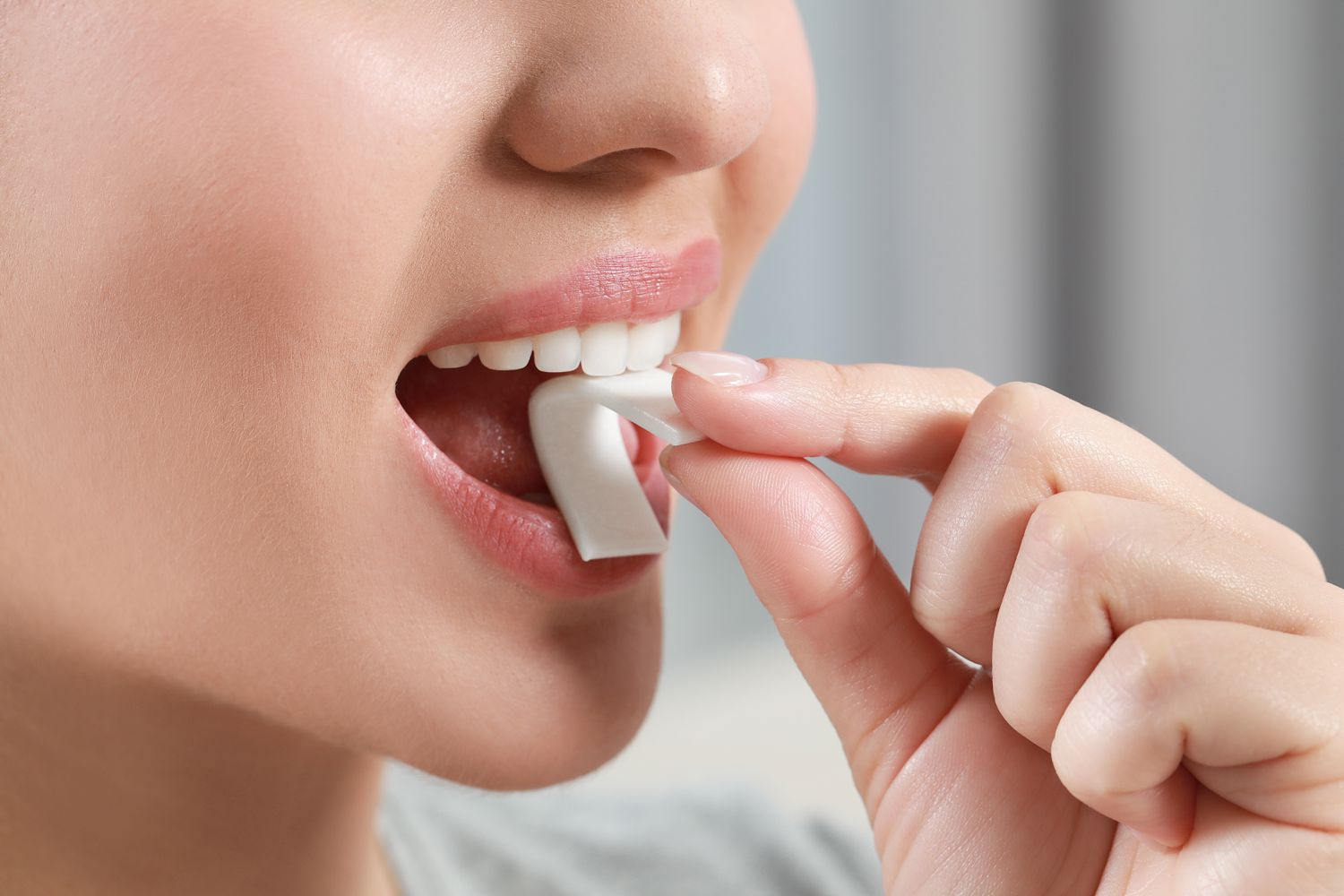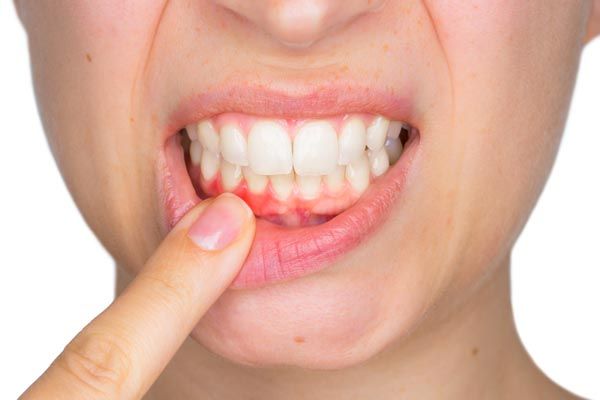Have you ever wondered: is xylitol gum good for your teeth? You’ve likely seen sugar-free gums that boast “tooth friendly” labels, and maybe you’ve heard that the sweetener xylitol is part of the reason. In this post, we’ll dig into the real evidence, talk about what happens when you chew xylitol gum, weigh up its pros and cons, and also introduce a broader oral-care solution if you’re dealing with gum issues like bleeding, sensitivity or inflammation.
Our goal? To help you answer that question in plain language. You’ll come away knowing “how is xylitol gum good for your teeth”, what it can and cannot do, how to use it (if you choose), and what else you might do to support your oral health.
What is Xylitol and How Does It Work?
Let’s start with the basics. Xylitol is a polyol (a form of sugar alcohol), which is naturally present in fruits, vegetables, and berries in large amounts. Commercially, it is created using the plant material such as birch wood or corn and then is added to the sugar-free gums, mints, toothpaste and other oral-care products.
The Sweetness of Chemistry.
Xylitol is similar to sugar in appearance and taste, however, in the body, it is not processed the same way. It contains an estimated 40 percent less calories than normal sugar, but induces the same sweetness. The thing is that bacteria in your mouth are incapable of processing xylitol to form acid. It is this mere difference that causes people to pose this question, is xylitol gum good for your teeth, and the answer is to be found right here.
As you consume normal sugar, the primary cavity-forming bacteria known as Streptococcus mutans feed on it and one of its products is acid. That acid decays your tooth enamel. Xylitol disrupts that cycle. The bacteria absorb it but fail to digest it to give them energy, practically starving them, and then lowering their capacity to multiply. In the long run, the number of bacteria decreases resulting in a reduction in acid attacks and cavities.
The Saliva-Stimulating Effect.
The stimulation of saliva is already caused by chewing gum on its own. The natural defense system of your mouth is saliva, it neutralizes the acids, it replenishes the pH balance and minerals such as calcium and phosphate are transported to enamel to be remineralized.
The effect is enhanced when xylitol is used together with it. The gum makes you chew longer and the xylitol gives you an antibacterial added advantage. It is one of the largest reasons why xylitol gum is good on your teeth, it builds up natural protection rather than acts against it.
How It Changes the Mouth’s Microbiome
Even more interesting is the fact that xylitol changes the bacteria ecosystem of your mouth. Research has demonstrated that regular use of xylitol does not only suppress bacteria in the short-term, but it has the potential to alter the structure of the plaque in the long-term. Bad acid-producing species reduce, as well as good or neutral bacteria flourish.
The Enamel Connection
Frequent acid attacks lead to demineralization, the gradual loss of minerals from enamel, making it porous and weak. Xylitol helps stop that process and even promotes remineralization.
When saliva is rich in calcium and phosphate ions, and acid levels are low, your enamel has a chance to heal microscopic damage before it becomes a cavity. Think of it as giving your teeth a breather, a chance to repair rather than constantly fight off acid.
A Daily Defender Against Hidden Sugars
Our diets are full of sneaky sugars, in sauces, snacks, and even “healthy” drinks. Using xylitol gum after eating helps counteract those sugar hits by maintaining a neutral oral environment. It’s not just about minty freshness; it’s a strategic way to protect your enamel between brushings.
Why Dentists Recommend It
Most dentists recommend chewing sugar-free gum with xylitol for about 20 minutes after meals. The combination of mechanical cleaning, saliva stimulation, and bacterial inhibition makes it a multi-layered defense system. It’s small, portable, and genuinely effective, one of the simplest preventive habits you can form.
So, when people ask, is xylitol gum good for your teeth, the science says yes. It’s not magic, but it’s one of the rare “sweet” things that actually helps your mouth rather than harms it. It reduces acid, strengthens enamel, balances bacteria, and supports saliva, all critical pieces of everyday oral health.
So - Is Xylitol Gum Good For Your Teeth?

Let’s bring it all together and answer the central question again: is xylitol gum good for your teeth? The answer is yes, with some important qualifications.
What you’ll get if you use it well
-
Replacing sugar-gum with a xylitol-gum significantly reduces the “fuel” for acid-producing bacteria, thereby lowering acid attacks on teeth.
-
The act of chewing gum stimulates saliva, which helps buffer acid, deliver minerals, and flush debris.
-
Studies show reduced plaque, reduced bacterial adherence, reduced cavities (in certain doses) when xylitol gum is used consistently.
-
It’s a good “extra layer” of defence, a useful adjunct to brushing, flossing, and professional cleanings.
What it will not do
-
It won’t replace brushing, flossing, and professional dental care.
-
It won’t remove existing tartar.
-
It won’t “whiten” teeth like a bleaching system.
-
It may cause digestive discomfort if over-used.
-
It requires the right product (gum with a meaningful xylitol content) plus correct timing (post-meal chewing).
So: yes, it’s good. It’s not perfect. Use it smartly. For example: choose a gum where xylitol is listed prominently as the sweetener, chew it for ~10-20 minutes after meals, do it daily or near-daily, and keep your regular oral hygiene in place.
What the Research Says?
So far, we’ve looked at mechanisms. What about real-world outcomes? Many studies have asked: is xylitol gum good for your teeth in practice?
Caries prevention (cavities)
A systematic review found that xylitol reduces plaque formation and bacterial adherence; it inhibits enamel demineralisation (acid attack) and has a direct inhibitory effect on Streptococcus mutans.
Another review states that habitual consumption (for example around 6-10 g/day) may help reduce caries.
Plaque and saliva
Dental sources note that sugar-free gum with xylitol can help wash away acid, increase calcium absorption, and strengthen enamel. Clinical guidance advises that chewing sugar-free gum with xylitol is beneficial, especially 20 minutes after eating.
Limitations
While many promising results exist, some caution that evidence is moderate rather than definitive. For example, a Cochrane review noted insufficient evidence to conclude that various xylitol-containing products (not just gum) will prevent tooth decay in all populations.
So, is xylitol gum good for your teeth? Yes: it offers a legitimate benefit when used properly, especially as part of a broader oral-care routine. But it’s not a magic bullet that replaces brushing, flossing, and professional care. It’s a valuable adjunct.
How Many Minutes Should You Chew Xylitol Gum?

One of the practical questions we must answer: how many minutes should I chew xylitol gum?
Dental guidance suggests:
-
Chew for around 20 minutes after eating or drinking, especially sugary or starchy foods. The extra saliva helps neutralise acid.
-
A more recent practical review indicates that chewing xylitol gum for 10 to 20 minutes, three to five times a day (totaling 5 g or more of xylitol) improves dental health.
-
Note: The gum should contain xylitol as the primary sweetener (not just a trace).
Practical tip summary
-
After a meal/snack: pop a piece of xylitol gum immediately or within 20 minutes.
-
Chew it for 10–20 minutes (or until the flavor fades).
-
Aim for a few times daily if you’re targeting cavity prevention.
Are There Negative Effects of Xylitol Gum?
Yes, as helpful as it can be, there are potential downsides to consider when consuming xylitol gum. Here are concerns:
Digestive issues
Xylitol is a sugar alcohol; at high doses it can cause bloating, gas, diarrhea, especially in people with sensitive guts or irritable bowel syndrome (IBS). Some sources state the laxative threshold may be near 50 g/day for adults.
Jaw/tmj concerns
Chewing gum excessively, especially if you already have jaw issues (TMJ disorders), may aggravate the joints. So even the “good” gum should be used wisely.
Pets
Xylitol is highly toxic to dogs (and some other animals). If you have pets, make sure products are stored safely.
Over-reliance
Even though xylitol gum has benefits, it cannot replace your primary oral-care routine (brushing twice a day, flossing, professional cleanings). Some dental sources emphasise this.
Summary
So yes, there are side-effects or caveats. But when used appropriately is xylitol gum good for your teeth? On balance, yes, provided you don’t overdo it, you chew the right amount, and you continue your normal oral hygiene.
Can I Chew Xylitol Gum Every Day?
A very common practical question: can I chew xylitol gum every day? The short answer: yes, you can, and many oral-health professionals suggest exactly that (in moderation).
Considerations
-
Daily use is fine if you keep to moderate amounts (e.g., around 5 g xylitol per day, spread across chewing sessions).
-
Make it part of your post-meal routine (rather than replacing brushing).
-
Monitor your individual tolerance (digestive system, jaw comfort).
-
Choose a gum where xylitol is the primary or dominant sweetener.
Why daily helps
Frequent exposures of harmful bacteria to xylitol (versus sugar) help suppress the bacteria over time, reduce acid episodes, and maintain higher salivary flow. The more consistent you are, the more benefit you’ll derive.
Yes, you can chew xylitol gum every day, as part of your daily oral-care regimen. That helps answer the broader question of is xylitol gum good for your teeth, in real-life daily use.
Can Xylitol Gum Whiten Teeth?
Another question you might be wondering: can xylitol whiten teeth? The simple answer: not directly. Here’s what we know.
What xylitol does
-
Helps reduce acid attack and bacteria, which protects enamel.
-
Promotes remineralisation and better enamel health.
What xylitol does not do
-
It does not change the intrinsic colour of your teeth (for example from yellow to bright white).
-
It’s not a bleaching agent or equivalent to professional whitening treatments.
So, does xylitol gum whiten teeth?
No, not in the sense of cosmetic whitening. But by reducing enamel damage and helping maintain healthier enamel, it may indirectly help your teeth appear healthier and perhaps slightly brighter over time by avoiding further staining or damage. In this way, yes, it helps your dental appearance, but don’t expect a “whitening” result like a bleaching kit.
Can Xylitol Remove Tartar?
Let’s address: can xylitol remove tartar? Tartar (also called calculus) is hardened plaque that has mineralised on the teeth. Once formed, tartar typically requires a professional cleaning to remove.
What xylitol can do
-
It may reduce plaque formation (before it becomes tartar) by inhibiting bacteria and acid.
-
It can support salivary flow and neutral pH, reducing the speed at which plaque mineralises into tartar.
What xylitol cannot do
-
Remove existing tartar. That remains the job of professional dental cleaning (scaling).
-
Fully prevent tartar if hygiene is otherwise lacking (no brushing, flossing).
So, no, xylitol gum will not remove existing tartar. But it may reduce or slow the formation of new tartar by reducing the underlying plaque development and acid challenge. Thus, for overall oral health support it still has a meaningful role.
Which is Safer, Xylitol or Stevia?
Now let’s compare: which is safer, xylitol or stevia for your teeth (and overall use)? Good question.
What is Stevia?
Stevia (derived from the leaves of the plant Stevia rebaudiana) is a natural sweetener with zero or near-zero calories. It is much sweeter than sugar, and does not appear to feed cavity-causing bacteria.
Comparison: Teeth-wise
-
Xylitol: Has been shown to actively reduce bacteria, acid production, plaque formation in several studies.
-
Stevia: Appears non-acidogenic (i.e., doesn’t feed bacteria) and may be anti-cariogenic (doesn’t cause cavities) but evidence of active anticavity benefit is less robust than xylitol.
-
Taste and usability: Some people prefer xylitol because its taste is closer to sugar. Stevia may have a licorice after-taste.
Which is safer?
From a dental standpoint, both are safer than sugar. But if you ask which is safer in terms of supporting oral‐health goals, I’d lean toward xylitol for the teeth (based on stronger evidence). That said, if you have digestive issues or prefer a no-calorie sweetener, stevia is a valid choice. For most users and for teeth, xylitol appears to have the edge.
Introducing a Natural Oral Care Solution For Gum Health
If you’re dealing not just with cavities but with gum-related issues, such as bleeding gums, tooth pain, sensitivity to hot or cold, then chewing xylitol gum alone may not be enough. That’s where a broader natural oral-care solution comes in.
We’d like to introduce you to The Goodbye Company Gum Disease Oral Solution. This isn't gum sweetened with xylitol. It’s an all-natural preventative oral-care solution expressly formulated to help both prevent and treat gingivitis (gum inflammation) and early gum disease.
What it includes
-
Omega 3 and Omega 9 oils: Healthy fatty acids known to support anti-inflammatory processes.
-
Neem and clove essential oils: Traditional botanical agents with antimicrobial and soothing properties for gum tissues.
Why mention this here?
Because if you are asking “is xylitol gum good for your teeth”, you might also be thinking about gum health, not just cavities. Xylitol gum helps with bacteria, acid, and enamel, but when it comes to inflamed gums, bleeding or sensitivity, you need to cover soft-tissue health too.
How to use it in daily routine
If you currently suffer from poor oral health such as bleeding gums, tooth pain, or sensitivity to hot/cold, introduce The Goodbye Company Gum Disease Oral Solution into your daily oral-care routine alongside brushing, flossing and (if you wish) chewing xylitol gum. Use it as your preventative and early-treatment natural gum-health product. It complements the benefit of xylitol gum (for enamel / plaque) with additional support for your gums.
Natural, non-salesy note
We’re not saying this replaces xylitol gum, or that xylitol gum is bad. Rather: xylitol gum is “good for your teeth” in the sense of cavity prevention, but when gum health is involved, you might want an additional tool that targets gum-tissue care. The Goodbye Company product offers that tool in a natural format.
Practical Guide: How to Incorporate Xylitol Gum into Your Oral Health Routine
Here’s a practical routine you might follow - assuming you want to optimise xylitol gum for your benefit.
Step-by-step
-
After meals or snacks – Within 20 minutes of finishing: chew a piece of sugar-free gum where xylitol is the primary sweetener.
-
Chew for 10-20 minutes or until flavor fades and the gum loses its sweetness.
-
Maintain brushing twice daily and flossing once daily. Use of mouthwash or rinse as your dentist advises.
-
If you have gum-related symptoms (bleeding gums, sensitivity, pain) – use The Goodbye Company Gum Disease Oral Solution as part of your nightly or morning routine.
-
Visit your dentist/ hygienist regularly (every 6-12 months or as your dentist recommends).
-
Monitor your chewing gum use: if you notice jaw fatigue (TMJ discomfort), reduce chewing time or frequency. If you notice a gut-up, reduce the amount of xylitol or spacing.
Tips for product selection
-
Check the ingredient list: xylitol should appear as the first or dominant sweetener.
-
Avoid gums that are “sugar-free” but use other sweeteners heavily and have only trace xylitol.
-
Consider gum flavour fading as cue: once the gum loses flavour, the benefit is mostly done for that session.
-
Use chewing then rinse or brush as normal, to maximise cleaning and mineralisation.
FAQs
Are there negative effects of xylitol gum?
Yes, digestive issues (gas, bloating, diarrhea), jaw strain if overused, high dosage risks. But moderate use is generally safe. See above section “Negative Effects”.
How many minutes should I chew xylitol gum?
About 10-20 minutes post-meal is optimal. Chewing for longer offers diminishing returns. Use the flavour fade as a guide.
Can I chew xylitol gum every day?
Yes, you can and likely should if you’re using it to support dental health. Just keep your hygiene routine consistent, and don’t overdo it.
Can xylitol gum whiten teeth?
Not in the cosmetic bleaching sense. It protects enamel and helps maintain healthy teeth, which may indirectly make your teeth appear cleaner/healthier, but it’s not a whitening product.
Which is safer, xylitol or stevia?
Both are safer than sugar for your teeth. For dental‐specific benefits though, xylitol has stronger evidence. Stevia is also safe and worthwhile, especially if you have digestive sensitivity.
Can xylitol remove tartar?
No, it can’t remove existing tartar. But it may reduce plaque formation that leads to tartar, thus helping prevent further build-up.
Outlook
So, to answer the repeated question: is xylitol gum good for your teeth, the concise verdict: yes, it is, when used correctly, alongside proper oral hygiene. It offers a meaningful benefit in the fight against cavities and supports enamel health via mechanisms of reduced acid production, increased saliva and bacterial suppression.
However, don’t conceive it as a standalone fix. If you’re also dealing with gum health problems (bleeding gums, sensitivity, gingivitis) you’ll want more than just xylitol gum. That’s where combining routine brushing/flossing, chewing xylitol gum, and using a targeted product like The Goodbye Company Gum Disease Oral Solution (with Omega 3/9 oils + neem + clove) gives you a more comprehensive approach.
In the end, your smile, gums and teeth deserve consistent care, not just one “miracle” product. But xylitol gum? It can absolutely be a smart, science-backed component of your oral-health toolkit.













